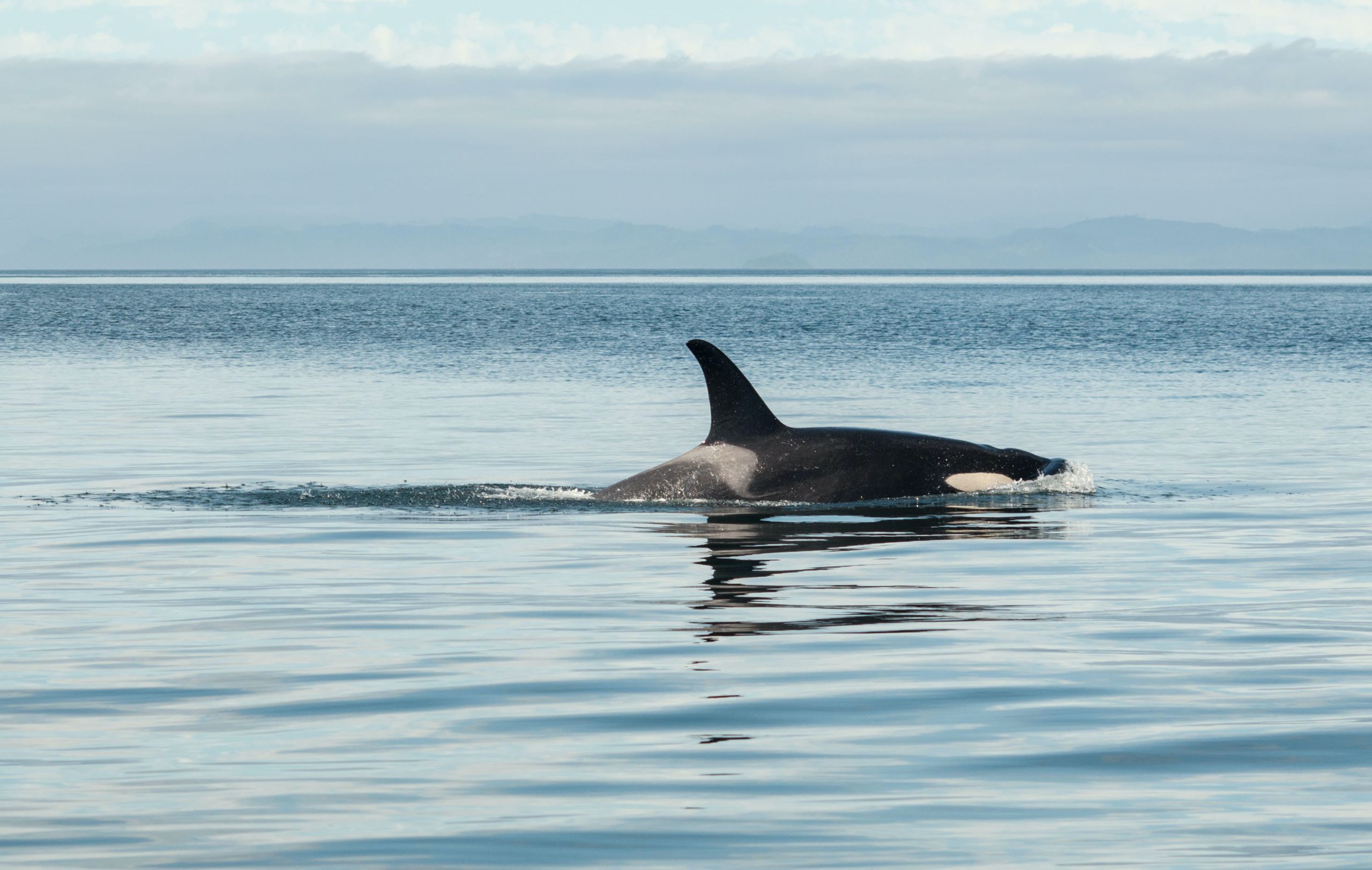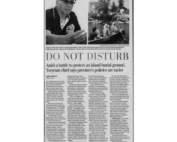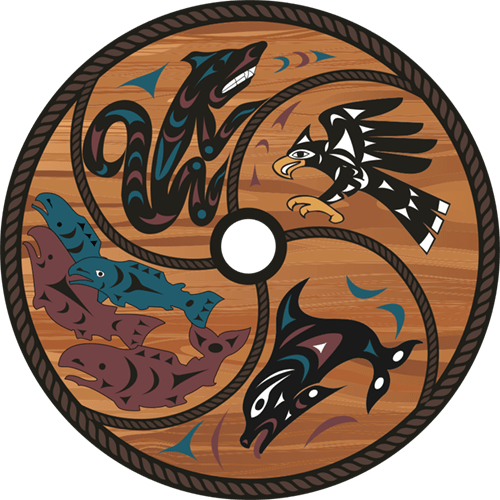Prior to colonization, the W̱SÁNEĆ people were part of nature, not apart from it. Since the removal and interruption of the natural ways of being, both W̱SÁNEĆ people and the killer whales have suffered. As such, the WLC is in the beginning stages of creating a Southern Resident Killer Whale (SRKW) Monitoring Program.
The SRKW Monitoring Program is a multi-year initiative that seeks to remedy the colonial interruption by creating something that resembles a W̱SÁNEĆ Guardian Program, like many other First Nations have done. This program will restore the balance between the W̱SÁNEĆ and the KELȽOLEMEĆEN / Orcas, get the W̱SÁNEĆ people out on the water, and make sure W̱SÁNEĆ sacred responsibilities are upheld.
The SRKW program vision is to realize four goals: to restore the relationship between the whales and W̱SÁNEĆ people through increasing understanding of the whales, working with like-minded allies to help the whales thrive, protecting the whales from the negative impacts of industry, and ensuring they have an adequate food supply.
By restoring the connection to the KELȽOLEMEĆEN / whales, the spiritual protectors of the W̱SÁNEĆ people, the W̱SÁNEĆ Leadership Council will establish the foundations for success. To get there, the SRKW will order a boat, which is scheduled to arrive in the second year. A working group will be established, consisting of three Elders, one each from Tsartlip, Tseycum and Tsawout, two language speakers and two technical workers. These knowledge holders and Elders will help shape the following years of the program. Lastly, the name and logo design for the SRKW Monitoring program will be finalized to ensure that W̱SÁNEĆ will have an easy to recognize presence on the water.
The next phase of the project, scheduled for January 2022, will be hiring and training staff to get out on the water and gather knowledge of the whales. A scientific approach will be incorporated when studying the impacts of marine traffic and noise, food competitors and the baseline health of food source areas such as Goldstream and other major rivers or streams.
However, the program’s success will hinge on gathering and implementing traditional W̱SÁNEĆ knowledge, such as the use of the First Salmon Ceremony, gathering stories of the Orca, and reinstating W̱SÁNEĆ natural laws. Once these knowledge sources are established, the SKRW Monitoring Program will then be able to funnel culturally appropriate data to the WLC and W̱SÁNEĆ Chiefs who can use this data in policy recommendations and negotiations. With this better understanding, the relationship between W̱SÁNEĆ and the SRKW can be shared more broadly via educational programs and materials, training programs and field trips. These educational materials will be geared to both W̱SÁNEĆ community members as well as settlers, to help communicate W̱SÁNEĆ people’s sacred responsibility to care for their relatives within the territory.
Another goal of the program is to establish partnerships with like-minded environmental groups and governmental organizations that are working to improve conditions for the whales. Organizations such as The Goldstream Volunteer Salmonid Enhancement Society may help ensure readily available food supply, while the data Parks Canada has on food competitors such as seals and sea lion populations can help drive recommendations going forward.
Finally, the SKRW Monitoring Program is dedicated to protecting the whales from the negative impacts of the commercial fishing industry, tourism industry and illegal poaching.
Recently, WLC staff attended a 4-day virtual conference with over 600 attendees from First Nation National Guardian Programs from across Canada, the US and Australia. Some of these programs use cutting edge technology to monitor and protect closed areas from boat traffic. The hope is that the W̱SÁNEĆ SRKW Monitoring Program can be shared at next year’s conference.
“It’s better to have our Guardians out there whose intentions on the waters are based on Indigenous caretaker values and supported by science, versus financial interests,” shares Dave Dick, the SRKW Monitoring Program Senior Manager.
(shown above, an overview of First Nation’s Guardian Programs)
The SKRW Monitoring program is a culturally appropriate initiative that restores the balance between W̱SÁNEĆ people and the whales through implementation of natural laws. The data derived from the program will be gathered through the lens of the principles and values of these natural laws – emphasizing abundance over sustainability, relationships over extraction and sacred responsibilities over economic development. As such, the WLC will have better information to use at the bargaining tables, to advocate for the whales, the water and the land and to uphold a culturally appropriate vision for the health of the territory. In addition, the SKRW Monitoring Program will act as a knowledge hub and stop-gap for Coast Salish Nations that may not have their own monitoring programs.
To stay up to date on this story and others, please sign up for our newsletter.







